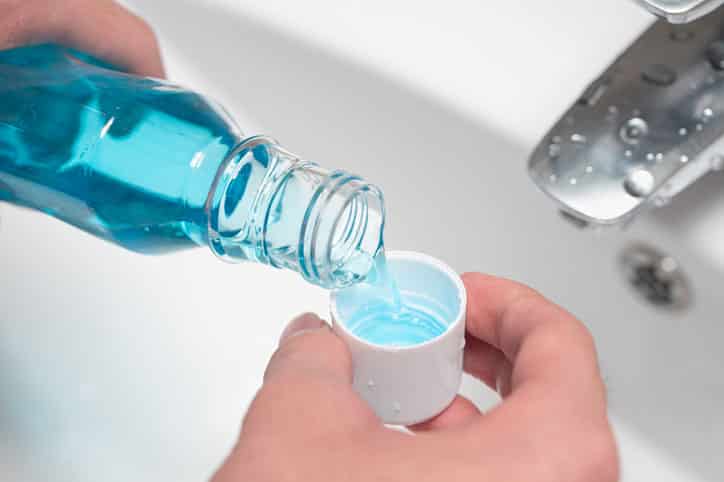There are dozens of mouthwashes on the market today in every color of the rainbow. Advanced whitening, total care, multi-protection, ultra clean – how can you decide which mouthwash is best? The key is to find the right mouthwash for your smile’s specific needs. Read on to learn how to pick the best mouthwash for your oral health.
Choose Mouthwash Based on Your Oral Health Needs
If you’re looking for an all-purpose mouthwash, you could make your selection based on flavor. If you’re in need of specialized oral health care, you can find a mouth wash that addresses those needs. Options include:
- Gum therapy
- Fluoride treatment
- Teeth whitening
- Bad breath
- Dry mouth (opt for alcohol-free mouthwashes)
- Sensitive teeth and gums
- Child-safe mouthwash (for ages 6+)
These options are available over-the-counter, but there are prescription mouthwashes as well. These are designed for specific purposes, like keeping a mouth clean after oral surgery. Your dentist, oral surgeon or periodontist will recommend the appropriate prescription mouthwash for you.
Not sure what your oral health needs are? Your dentist would be happy to help you out. Clinton Dental Center offers personalized dentistry solutions for children, teens and adults. Your entire family can come to the same dentist office, making it easy to schedule appointments around your busy schedule. Give us a call at (586) 949-5363 to set up an appointment with Dr. Sadikoff.
Signs of a Good Mouthwash
As a general rule of thumb, look for mouthwashes that have the American Dental Association’s Seal of Acceptance. This indicates that the mouthwash has been evaluated by the ADA. If the mouthwash claims to whiten and has the ADA seal, those claims have been tested and proven by an independent organization.
Most good mouthwashes will contain fluoride. This mineral fights off tooth decay and strengthens enamel. Make sure your mouthwash has fluoride in it for maximum oral health results.
How often Should I Use Mouthwash?
Mouthwash is not required for good oral health. As long as you brush your teeth at least twice a day, floss once a day, and get professional dental cleanings every six months, your smile will be well protected. If you want to use mouthwash to supplement your oral health routine, do so after brushing and flossing.
You could also use mouthwash in between brushing sessions if you need to quickly clean part of your mouth. For instance, if you’re at work and unable to get to a sink, a quick rinse could be a good refresher until you get home in the evening. Follow-up with a thorough cleaning session before bed, and you’re good to go!











